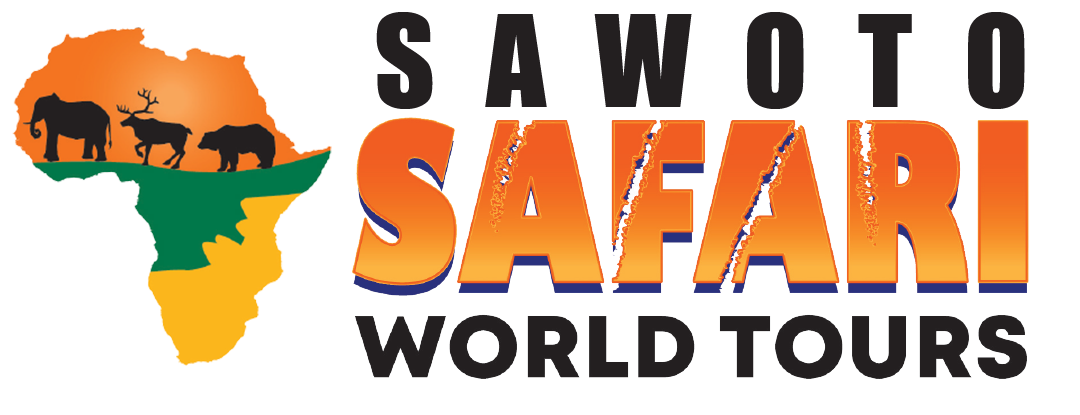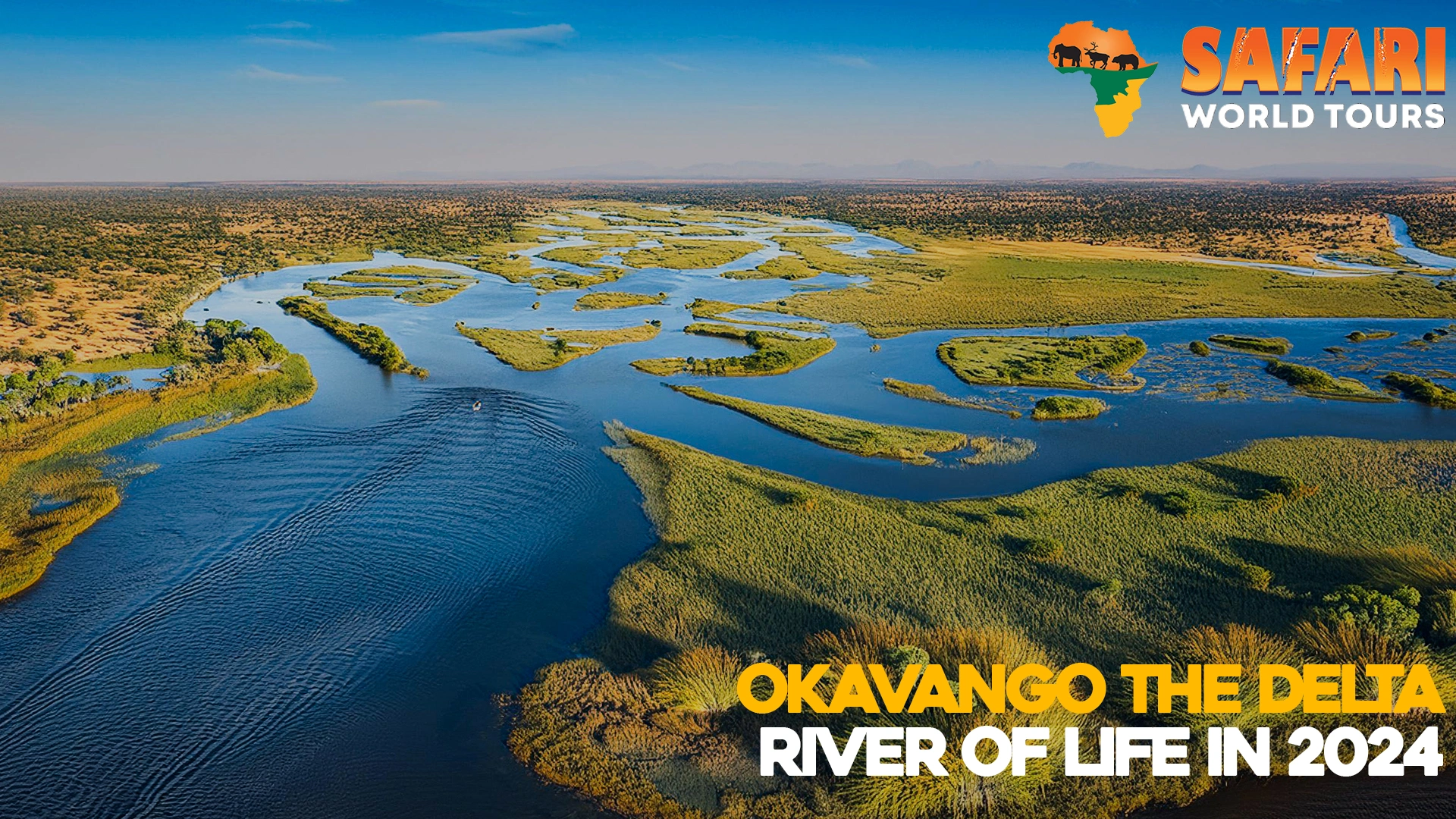Viele Menschen fragen sich, warum der Okavango-Fluss einer Erwähnung wert ist, bis sie das spektakuläre Erbe, das Millionen Menschen nach Namibias Okavangodelta-Fluss lockt, mit eigenen Augen sehen.
Interessanterweise wurde das Okavango Delta benannt nach UNESCO als offizielles Kulturerbe, als 1000.th soll 2014 in die UNESCO-Welterbeliste aufgenommen werden.
Der Fluss wird als wahres Naturwunder beschrieben, da er mitten in einer Wüste fließt und eine Attraktion für eine reiche Tierwelt darstellt.
Der Okavango gilt als der viertlängste Fluss im gesamten südlichen Afrika. Der Fluss wird von drei Ländern geteilt, da er durch Zentralangola, dann Namibia und die Kalahari WüsteDas Okavangodelta liegt am nördlichen Rand der Kalahari-Wüste.
GESCHICHTE DES OKAVANGO DELTA-FLUSSES

Die Gebiete um den Okavango-Fluss sind seit 100.000 Jahren von Menschen bewohnt. Okavango-Delta ist eine natürliche Formation, die vor über 50.000 Jahren auftrat und durch ein Erdbeben verursacht worden sein soll.
Dies führte dazu, dass der Okavango-Fluss in die Wüste überging. Der Fluss versorgt die Menschen mit Wasser für ihr Vieh und ist reich an Fisch. Die Menschen betreiben Fischerei und Subsistenzlandwirtschaft, um ihren Lebensunterhalt zu verdienen.
WAS IST DER OKAVANGO-FLUSS SO BESONDERS?
Im natürlichen Sinne ist die Existenz des Okavangodeltas logischerweise nicht zu erwarten, da es, anders als die meisten Deltas, auf einem 18.000 Quadratkilometer großen Feuchtgebiet inmitten einer sehr trockenen Wüste liegt.
Vor etwa 2 Millionen Jahren floss der Fluss auf natürliche Weise durch Botswana und mündete in die Makgadikadi, wie Historiker berichten.
Das schwere Erdbeben, das sich vor etwa 50.000 Jahren ereignet haben soll, könnte jedoch die Ursache für die Unterbrechung der Fließgeschwindigkeit des Okavango-Flusses gewesen sein, wodurch das Wasser in das trockene Land statt ins Meer floss.
Daher ist es zu einem monumentalen Anblick geworden, da dadurch eine natürliche Oase entstanden ist, die als Okavangodelta bekannt ist.

ÖKOSYSTEM FÜR WILDTIERE
Der Okavango-Fluss ist zur Heimat für die reiche Tierwelt des Wüstengebiets geworden, sowohl für Tiere als auch für Vögel. Eine beträchtliche Anzahl von Krokodilen, Nilpferden, Tigerfischen und Eisvögeln genießt dieses geeignete Ökosystem.
Das Deltagebiet kann sich während der Hochwasserspitzen über 16.000 Quadratkilometer ausdehnen und einen großen Teil der Fläche einnehmen. Infolgedessen zieht sich die Tierwelt in die Region zurück und versammelt sich am Rand, wenn der Wasserstand sinkt.
MÖCHTEN SIE UNS BESUCHEN?
Es empfiehlt sich, den Ort zu besuchen, wenn die Überschwemmungen minimal sind. So können Sie die Schönheit dieses Naturwunders am besten einfangen. Diese Zeit liegt zwischen Mai und Oktober.
Die Wildtiere kommen in großer Zahl heraus und der Anblick, wenn die Flusspferde ihre Köpfe aufplustern und die Vögel auf den Bäumen sitzen, ist außergewöhnlich schön.
SPASSIGE AKTIVITÄTEN, DIE SIE GENIESSEN KÖNNEN
Besucher haben die Möglichkeit, Wildbeobachtungen, Vogelbeobachtungen, Angeln und Fotografie zu erleben. Die Nachtfahrten sowie die Safari zu Fuß können eine Reise wert sein.
Sie erhalten auch einige der komfortabelsten und Luxuriöse Lodges und Camps während Ihres Aufenthalts, während Sie Afrika von seiner ungezähmten Seite genießen.
Bedrohungen für den Okavango-Delta-Fluss und sein Ökosystem
Eine der größten Bedrohungen für den Okavangodelta-Fluss ist der Klimawandel. Temperaturschwankungen, Niederschlagsmuster und extreme Wetterereignisse können die Hydrologie des Deltas verändern und die Brut- und Migrationsmuster der dort heimischen Arten stören.
Der Klimawandel kann auch zur Verbreitung invasiver Arten beitragen, die einheimische Pflanzen und Tiere verdrängen und das Gleichgewicht des Ökosystems stören können.
Auch menschliche Aktivitäten stellen eine erhebliche Bedrohung für den Okavangodelta-Fluss dar. Landwirtschaft, Viehzucht und Urbanisierung können zu Lebensraumverlust und -fragmentierung, Bodenerosion und Verschmutzung der Wasserwege führen.
Unkontrollierte Jagd und Wilderei können zudem die Wildtierpopulationen bedrohen und das ökologische Gleichgewicht des Deltas stören.
Die Übernutzung der Wasserressourcen stellt eine weitere erhebliche Bedrohung für den Okavangodelta-Fluss dar. Da die Bevölkerung in der Region weiter wächst, steigt der Druck auf die Wasserressourcen, was zu Wasserknappheit, verminderter Wasserqualität und einer weiteren Verschlechterung des Ökosystems führen kann.
Um diesen Bedrohungen zu begegnen, sind Naturschutzbemühungen erforderlich, um die Artenvielfalt und die ökologische Integrität des Okavangodeltas zu schützen.
Hierzu gehören nachhaltige Landnutzungspraktiken, eine verantwortungsvolle Tourismusentwicklung und Wassermanagementstrategien, bei denen die Gesundheit des Ökosystems und die Lebensgrundlagen der Gemeinschaft im Vordergrund stehen.

FAQs
F: Was ist der Okavangodelta-Fluss?
A: Der Okavangodelta-Fluss ist ein großes Binnendeltasystem in Botswana im südlichen Afrika. Es ist eines der wichtigsten Deltas in der Ökosphäre und ein UNESCO-Weltkulturerbe.
F: Welche Bedeutung hat der Okavangodelta-Fluss?
A: Es handelt sich um ein einzigartiges und artenreiches Ökosystem, das Lebensraum für eine Vielzahl von Pflanzen und Tieren bietet. Es sichert auch den Lebensunterhalt der lokalen Bevölkerung und ist eine große Touristenattraktion.
F: Wie entstand der Okavangodelta-Fluss?
A: Das Okavangodelta wurde durch den Okavango gebildet, der in Angola entspringt und nach Süden nach Botswana fließt. Der Fluss breitet sich im Delta aus und bildet ein Labyrinth aus Kanälen, Inseln und Lagunen.
F: Welche Arten von Biota findet man im Okavangodelta?
A: Es ist die Heimat einer vielfältigen Tierwelt, darunter Elefanten, Löwen, Leoparden, Geparden, Hyänen, Flusspferde, Krokodile und über 400 Vogelarten.
F: Wie kann ich den Okavangodelta-Fluss besuchen?
A: Besucher können es über die Straße, per Flugzeug oder per Wasser erreichen. Viele Lodges und Camps bieten geführte Safaris und Bootstouren des Deltas.
F: Welche Aktivitäten sind im Okavangodelta beliebt?
A: Zu den beliebtesten Aktivitäten im Okavangodelta zählen Pirschfahrten, Wandersafaris, Fahrten im Mokoro (traditionelles Einbaum-Kanu), Vogelbeobachtungen und kulturelle Touren.
F: Wie wird der Okavangodelta-Fluss geschützt?
A: Der Okavangodelta-Fluss wird durch verschiedene Naturschutzmaßnahmen geschützt, darunter die Einrichtung geschützter Gebiete wie das Moremi Game Reserve und das Okavango Delta Ramsar Site, gemeindebasierte Naturschutzinitiativen sowie Forschungs- und Überwachungsprogramme.


